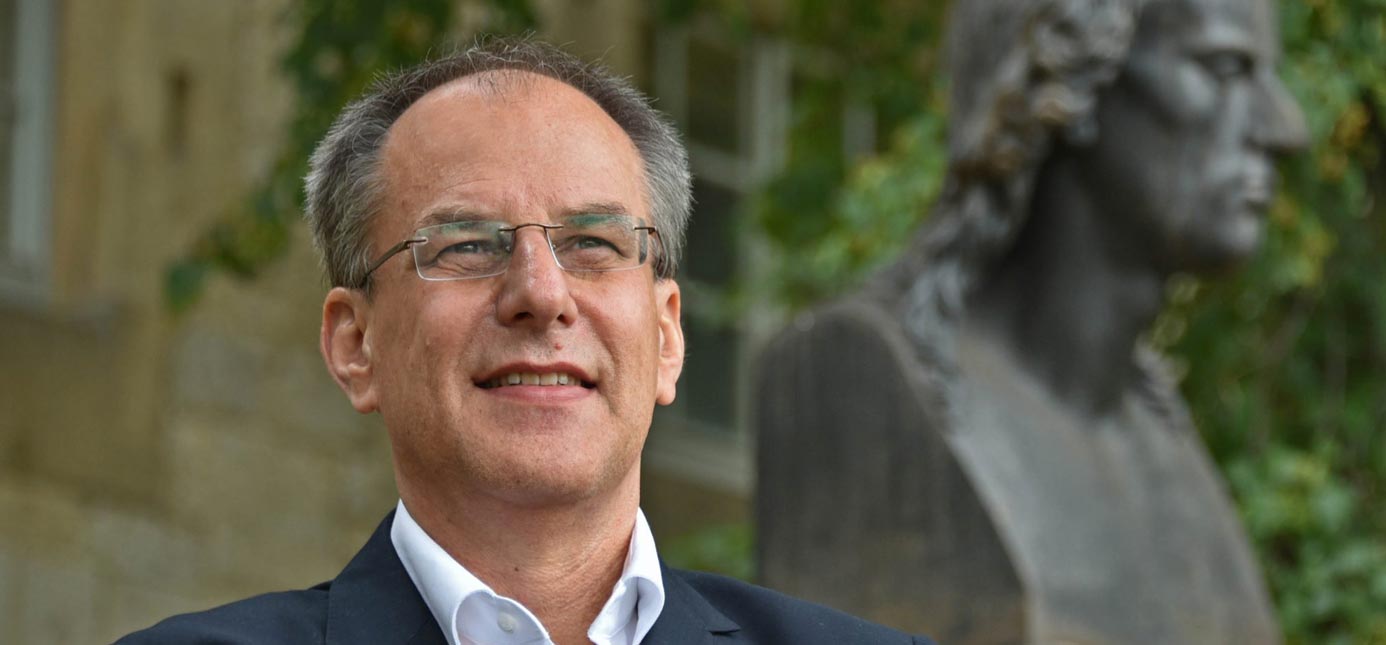We profs need to be role models for Open Science
Professor Uwe Cantner talks about his Open Science vision

Three key learnings:
- Open Science needs infrastructures with excellent usability and sensible incentive systems.
- A sustainable Open Science transformation can only be achieved in a European dimension.
- Professors must become Open Science role models for an Open Science transformation in economics.
Based on your experience, how do you assess the importance of Open Science in the future?
UC: Open Science, be it as Open Access, Open Data or Reproducible Research, is essential for scientific quality and development. Especially in Open Access I observe that my peers are increasingly uncomfortable with the traditional publishing system. My impression is that many scholars are unwilling to put up any longer with the dominance of the publishers. We researchers provide most of the work in journal publishing. Reviewers who get paid for peer review by a publisher are an extremely rare species. Especially in view of the effort that goes into such a review. It’s a mystery to most of us what exactly publishers contribute to a publication. The bills fluttering into the mailbox, that we have to pay so we can read our colleagues’ papers, are very real, however. This is absurd. All of us must effect a structural change because Open Science is essential for good science and innovation.
Where do you see leverage to effect such a transformation towards Open Science?
UC: First of all we need good infrastructures with high usability, easily managed landing sites for our research output, such as publications, data or code. These infrastructures must be attractive – more attractive than the current system. This takes time. Incentives and incentives systems matter a great deal. Right now we are all enclosed in the traditional system because of the network effects. We need a few clever initial interventions so that all rise in unison and change over to the Open Science system. These could be changes in the regulations for doctoral programmes or new criteria for appointments. There are no limits to creativity. I see a great need for a discourse here which is only too rare in the professional associations. Once the first obstacles are overcome, a new infrastructure based on Open Science can prevail.
Who should be engaged in this discourse?
UC: I am an avid advocate of the European Open Science Cloud. Nobody profits from a German-only silo solution. We need to think European. If we look at the universities with the highest publications output we find that they are in the USA or China. Europe plays in a very small league here. A sustainable Open Science transformation can only be achieved in a European dimension. Therefore the European Open Science Cloud (EOSC) is the way to go. Of course science doesn’t stop at the borders of Europe and we will have to incrementally include the world in our plans.
Let’s step back from science policy and look at personal responsibility: where do you see leverage here?
UC: Lookat the statistics of tertiary education. There are around 48,000 professors at German universities. We also have 193,000 research assistant who are in the early stages of their careers. They need and ask for supervision from their supervisors. This is were we as professors could and should get involved. We should be leading by example and encourage our PhD candidates to change over to the Open Science system with us, step by step. We must be role models for Open Science and for high-quality academic work – each in his or her discipline and all together for science.
The interview was conducted on November 8, 2020.
About Professor Uwe Cantner
Professor Uwe Cantner has been Professor of Microeconomics at Friedrich Schiller University in Jena since 2000. Since 2010, he has been Professor of Economics at the University of Southern Denmark in Odense. Since 2014, he has filled the position of vice-president of Jena University and of director of its Graduate Academy. In 2019, he was named chair of the Advisory Committee on research and Innovation of the Federal Government. His research interests are innovation economics, ecolutionary economics and measurement of productivity and efficiency.
Contact: https://www.microtheory.uni-jena.de/cantner
ORCID-ID: https://orcid.org/0000-0002-2067-493X
Twitter: https://twitter.com/uwe_cantner
